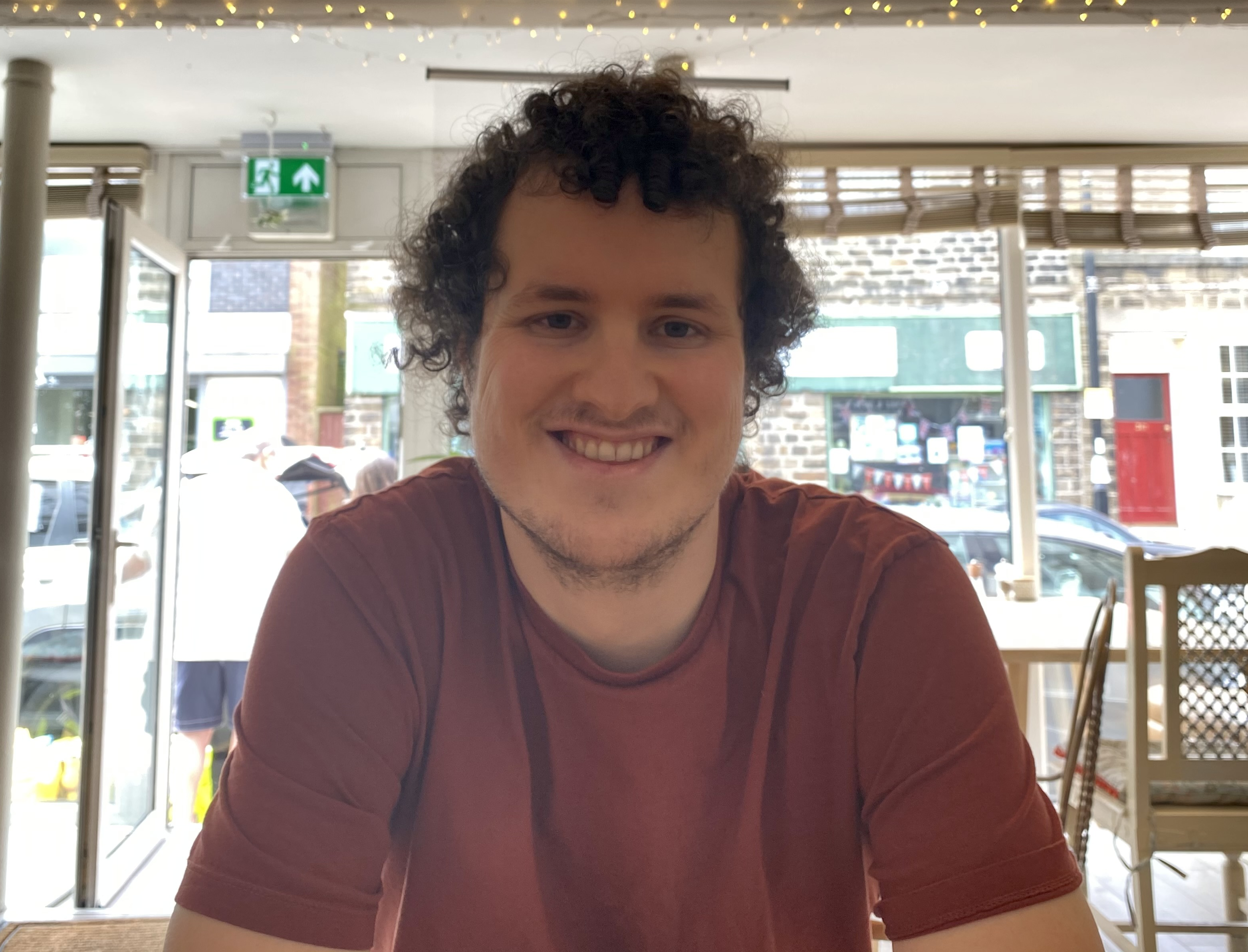Fallout 76's new boardwalk empire shows just how far it's walked since 2018
Interview | Atlantic City is a semi-hostile holiday spot for the millions who love the West Virginian wasteland
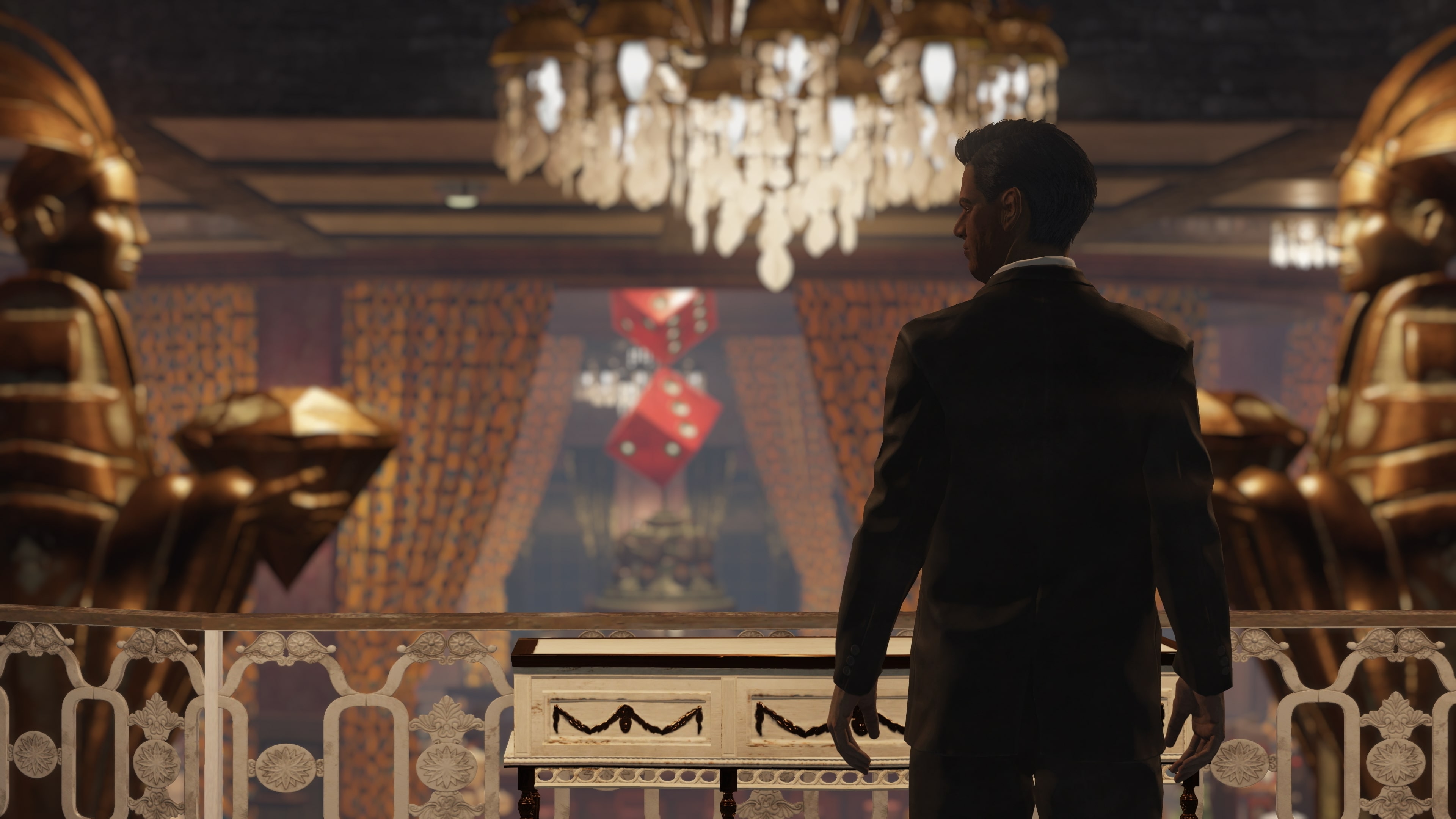
A new nightclub has opened up in Appalachia – quite a concept in the early 22nd century. In Fallout 76, most don't go out at night for fear of tripping into a radioactive fissure or inviting the attention of feral ghouls. Yet the dilapidated old Ingram Mansion is now The Rose Room, its drafty windows lit up like Christmas and lined with crimson curtains. Tired of blasting raiders for critical limb damage in VATS? Try your luck with the club's one-armed bandits instead. Leisure time has finally reached the wasteland.
Mind you, we're still a long way from an Adele residency. In the basement bar, a sole musician lays down a bluesy bassline on the tuba – only to be shot dead by a particularly unsatisfied patron. This blunt review prompts a firefight, and an exasperated exchange between The Rose Room's owners. "Vincenzo," demands matriarch Evelyn Russo, with the energy of Tilda Swinton at her most unhinged. "Why is my audience dead?"
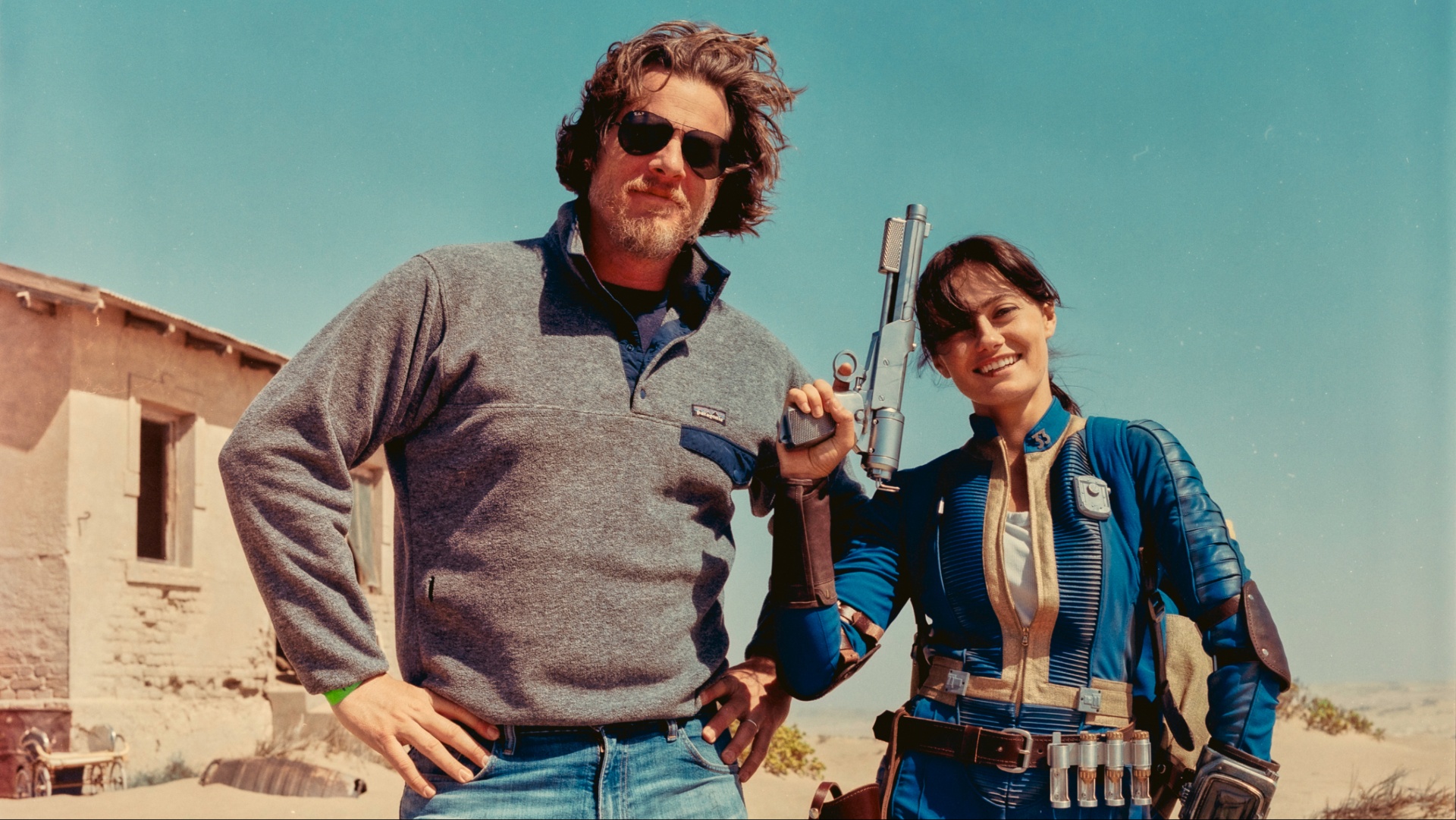
Fallout TV show release date, cast, story, and everything you need to know
As it turns out, the gunplay was a hit gone wrong. Mafia trouble has followed the Russos from Atlantic City, and you'll need to go back there if you want to help repair the family's business – not to mention their rampant egos and drug withdrawal issues. Yes, the main quest of Fallout 76's big new update, America's Playground, is a gangland opera. It's far removed from the sort of storytelling that defined Bethesda's MMO when it launched half a decade ago. Back then, West Virginia told its tales through a combination of holotape diaries, scrawled notes and terminal entries – the former residents of the area having either skipped into the next state or shuffled off their mortal coils entirely.
Over time, however, Appalachia has become much less lonely. NPCs returned to Fallout in 2020's Wastelanders overhaul, and proved chattier than ever. Even the raiders are up for a chinwag – reflecting both the friendliness of Fallout 76's community and its appetite for more conversation. Since that change, Bethesda has embraced more traditional RPG quest design. Nowadays, Fallout 76 stories are stuffed with optional objectives, and conversations dotted with the Charisma and Intelligence checks fondly remembered from earlier games in the series.
"From a quest design perspective, that's very much been the goal – to bring back a lot of that classic Fallout quest feel," lead quest designer Joshua Moretto says. "Because when we launched, we were very much more of a survival RPG. The players respond to those stories, and so with Wastelanders, we were able to turn back in that other direction."
What a waster
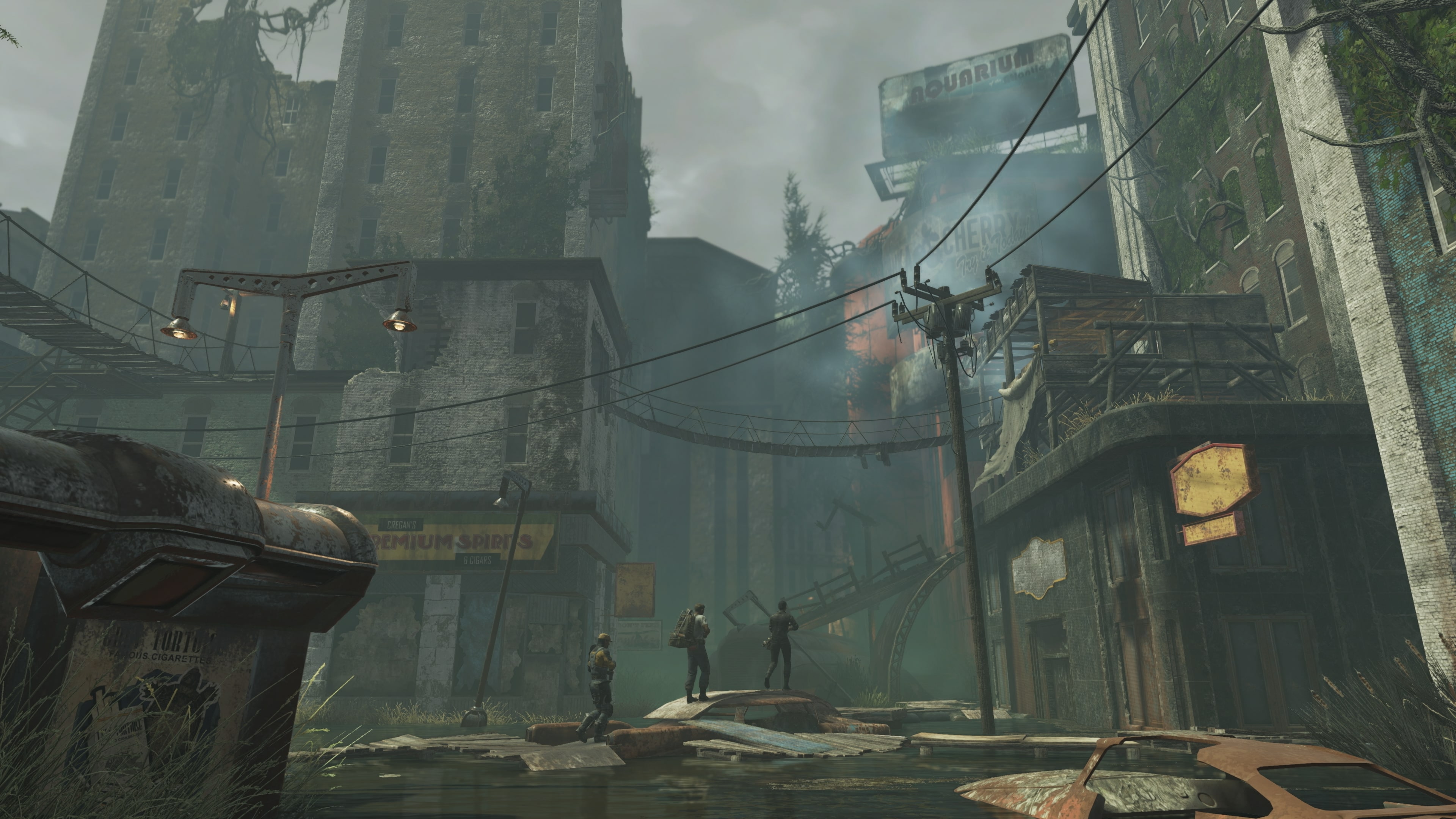
The tale of the Russos is the most intimate and domestic the Fallout 76 team has attempted to date. In that sense, it stands in contrast to the game's major fate-of-the-world quest lines – about inoculating the population against the Scorched plague, and the formation of the Brotherhood of Steel. "With this, we wanted to tell a more personal story," Moretto says. "A small story about the lives of ordinary people essentially living in this situation."
Today, the different layers of Fallout 76's identity stack in satisfying fashion. Take the Ingram Mansion, which at launch told a quiet story about wealth rendered inconsequential by the breakdown of society – and later became an outpost for the Cult of the Mothman. As The Rose Room, the same building hosts all three of these moments in time simultaneously: recordings of cultist sermons coexisting with the original architecture and the assorted detritus of the Russo family. This is the magic of Fallout as a narrative proposition, offering both a living world and an archeological dig site for hidden tales. Thanks to half a decade of build-up, Fallout 76 is especially satisfying to excavate.
Sign up to the GamesRadar+ Newsletter
Weekly digests, tales from the communities you love, and more
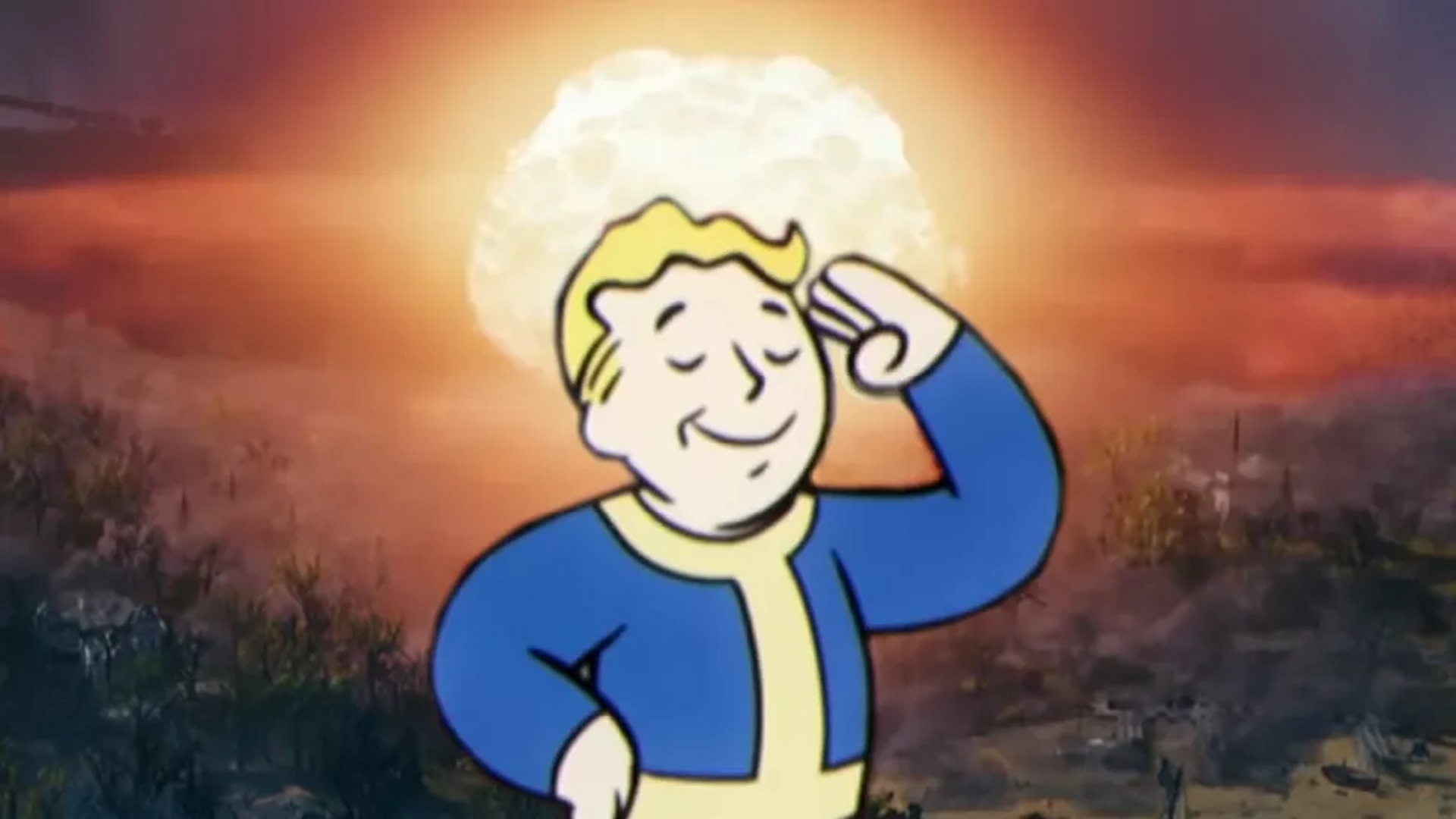
Fallout 76 has grown beyond recognition since launch in 2018 - here's what we said at the time in our Fallout 76 review
Atlantic City is a new area built outside the main map, and so doesn't have five years of in-game history to lean on. Nevertheless, Bethesda has been at pains to infuse it not only with new NPCs but environmental truffles for players to find. "Our level design team are big fans of that," Moretto says. "A lot of our environmental storytelling originates with them. Even before we come in with quests, they are putting in little details and some of those terminals and notes and so forth. In Atlantic City, where it's all new to the game and new to Fallout, we're still looking to layer in those stories of what came before – on top of anything we're telling in the current time."
On the tonal spectrum of Fallout, Atlantic City trends lighter. It was first introduced last year via Expeditions – brief and repeatable bursts of high-octane action in which players helped a mob accountant named Billy Beltbuckles to cook the books, all while under attack from municipal auditors armed with flamethrowers and gatling guns. "Coming out of The Pitt, famously one of the bleaker settings within the Fallout universe, we knew we wanted Atlantic City to have more humor in it," Moretto says.
With the America's Playground update, it's now possible to return to these Expedition hotspots and rediscover them while free roaming – at the more explorative pace most associate with Fallout. "Outside of a mission, these spaces feel different, because they're not in the midst of a crisis," Moretto says. "If you go to the boardwalk or the city center, you'll see a lot more regular life – citizens just going about their business and hanging out in the casinos, as opposed to 'everything is burning.'"
Steering a vulnerable level 20 character, I see the drowned streets of Atlantic City with a power-armored escort – Moretto joining creative director Jon Rush and senior systems designer Fahad Khan to form a protective ring of steel. Above street level, high rise buildings recall Fallout 4's Boston – a shock to the system after years in Appalachia's rural environs. "It makes traversal a lot more engaging and fun," Rush says. "When there's not just that topographical element, but also the verticality that you're playing with as well."
Family ties
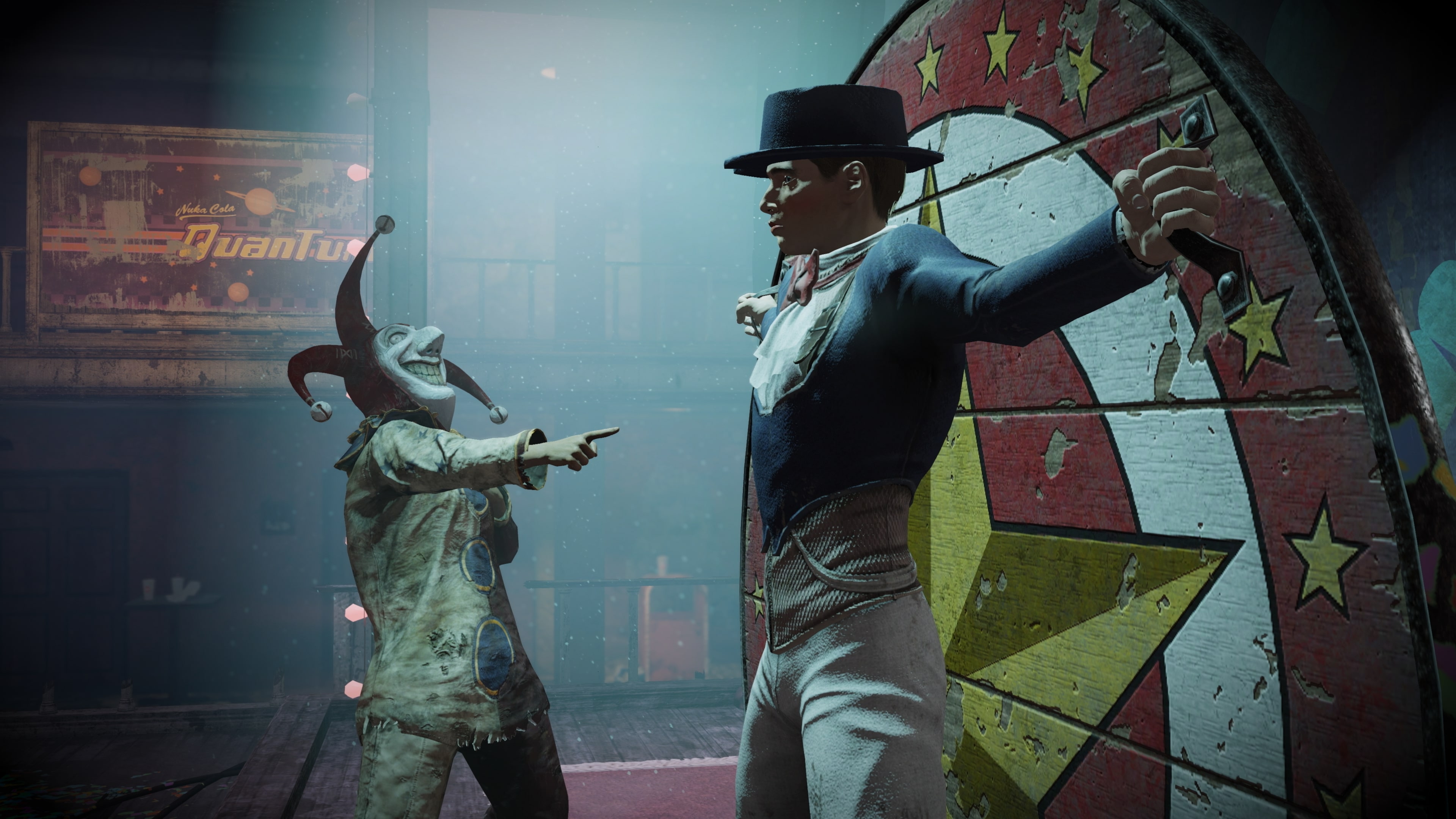
"And we gotta have the Jersey Devil. We're a game that loves cryptids. We cannot go to a place with a native cryptid and not have the cryptid involved"
The individual members of the Russo family act as windows into the various factions of Atlantic City. Patriarch Antonio has connections to the criminal Lombardi family, while Evelyn is tied to the melodramatic Showmen, and their son Vin used to work with the Municipal Government. An uneasy alliance between the three groups has kept the city running since the bombs fell – but recent internal clashes have seen them neglect their gardening duties. That becomes apparent as we explore, and thorny, monstrous plant life begins to test the defenses of my escort. Levitating, bulb-like Pollinators buff our enemies – so the developers take those down first before turning on the hulking Elders.
"The Overgrown are thematically speaking a direct manifestation of nature trying to take the city back after the destruction of the war," Moretto says. "From a visual perspective, we were drawing on the New Jersey Pine Barrens, which takes up a third of the state and has a lot of swamps and bogs – and carnivorous plant life, actually."
Bethesda has long drawn on the real-world history of its locations to shape the personality of its open worlds. Just think of the Commonwealth's Minutemen and MIT-inspired Institute, and the outsized influence they had on Fallout 4. The Enclave base at the heart of the Appalachia wasteland, meanwhile, is based on a secretly-constructed congressional bunker in the same spot. As a New Jersey native, Moretto was personally invested in making Atlantic City as "honest and authentic as we can be while still making it Fallout".
"There's a lot of public perception and stereotypes about New Jersey, especially in the United States itself," he says. "It's a question of making sure that the voices felt right. And we gotta have the Jersey Devil. We're a game that loves cryptids. We cannot go to a place with a native cryptid and not have the cryptid involved."
Even while building a holiday destination for its players, then, Bethesda is still thinking of Appalachia. "At the end of the day, Fallout 76 is always a game about West Virginia," Moretto says. "We're always going to keep the primary focus there. You'll be seeing a lot more of that soon."
Later this year, Bethesda will extend the bottom part of Fallout 76's main map into a wooded region based on Shenandoah National Park – within a stone's throw of Washington DC, where the studio's journey with Fallout first began. It seems only fitting, given just how much Fallout 76 has come to resemble its beloved predecessors – and against the odds, to exemplify the very best of the series.
Check out our list of the best Fallout games - ranked in order
Jeremy is a freelance editor and writer with a decade’s experience across publications like GamesRadar, Rock Paper Shotgun, PC Gamer and Edge. He specialises in features and interviews, and gets a special kick out of meeting the word count exactly. He missed the golden age of magazines, so is making up for lost time while maintaining a healthy modern guilt over the paper waste. Jeremy was once told off by the director of Dishonored 2 for not having played Dishonored 2, an error he has since corrected.
